After extensive engagements with staff, students, alumni and external stakeholders, I am pleased to inform you that Council approved our Vision 2030 strategy on 25 March 2021.
I would like to express my appreciation to all those who contributed to shaping our decadal strategy by participating in the various opportunities provided to give inputs, which commenced with the Vice-Chancellor’s Listening Campaign in 2018 and culminated in wide-ranging stakeholder engagements in 2020/21.
As an integral part of the planning process, we have also engaged in futures thinking to scan the horizons of higher education nationally and globally as part of our ongoing efforts to promote readiness for a volatile and uncertain future.
In particular, the valuable lessons we have learnt during the COVID-19 pandemic must become a platform for accelerating and deepening our transformative advances as we strive to promote the public good.
Mandela University COVID-19 vaccination gets under way
Nelson Mandela University has been approved as a Master Facility COVID-19 Vaccination Site by the Eastern Cape Department of Health (ECDoH).
The University is joined the national vaccination rollout programme from Monday, 14 June 2021, inclusive of its own COVID-19 management and vaccination plans to support staff and students.
Mandela staff and spouses who form part of Phase 2 of the national rollout programme (the 60-plus group) were informed by the University of the opportunity to be vaccinated on its North Campus in Gqeberha.
George Campus is still awaiting its final accreditation approval from the Western Cape Department of Health before it can also support the national rollout programme.
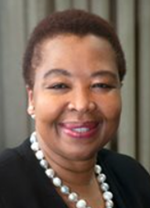
#FROM THE VC - Nelson Mandela University shines in the Times Higher Education Impact Rankings
The Times Higher Education [THE] Impact Rankings are global performance tables that assess universities against the United Nations’ Sustainable Development Goals (SDGs) – essentially measuring higher education institutions’ contribution to the SDGs.
Measuring this contribution and the impact that the institution is having is especially important to Nelson Mandela University as it strives to be in service of society.
Journalism students grab headlines on Youth Day
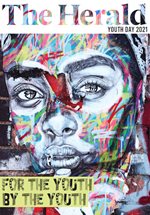
Journalism graduates and students of Nelson Mandela University contributed to a special Youth Day supplement published by The Herald on June 16, 2021.
2020 Journalism graduate, Michael Mdluli, even shared a front page by-line for his contribution to the June 16 lead story “The young and the jobless”, which focused on unemployed and unemployable graduates in the Eastern Cape.
Michael, whose assessment was selected for publication, had been invited to collaborate with veteran reporter Michael Kimberley only a few days earlier.
He said that he was ‘shocked and overwhelmed’ when his lecturer, Cindy Preller, contacted him to inform him that his article had been printed on the front page of The Herald. Michael thanked his sources for sharing their stories with him.
‘Undo fear,’ says chair in African Feminist Imaginations
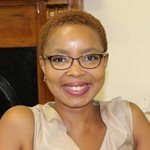
The South African Research Chairs Initiative, or SARChI, launched a chair in African Feminist Imaginations at Nelson Mandela University, South Africa, on 5 June, headed by Professor Pumla Dineo Gqola from the university’s Centre for Women and Gender Studies.
“The chair is all about shifting how we think about gender power and women’s contributions in the world. This includes generating research on the archive of African women’s intellectual and political work as key thinkers, theorists and figures in the liberation struggle, decoloniality and transformation,” says Gqola.
The chair is called ‘Imaginations’ because, as a professor of literature, Gqola is interested in how the creative genres and popular culture are sites of knowledge production and how they nurture ideas that are disruptive to patriarchal culture.
Mandela University academic receives recognition for first peoples’ research

Dr Magda Minguzzi, senior lecturer at Mandela University’s School of Architecture and researcher at the Institute for Coastal and Marine Research, recently received recognition for her years of research and commitments with the First Nation.
Recognition came in the form of a hat, used during traditional practices or special events and specially created for her.
"I felt very privileged and honoured to have received such recognition”, Dr Minguzzi said.
Dr Magda Minguzzi has been invited by Prof Roger Fisher of Pretoria University, to join the “Marking Memories - Mashishing Rock Engraving Project” lead by Dr Lauren Dyll of the University of KwaZulu-Natal and coordinated by Dr Mary Lange (ARROWSA, Arts, Culture and Heritage Centre), JP Celliers (Curator of the Lydenburg Museum), Prof David Morris (head of the archaeology section of McGregor Museum) and Prof Fisher.
This is a project based in the North of the country where ancient rock engraving sites have been documented in coordination with the indigenous community. Currently, the group is busy with consultations at a national level with different communities and peoples, around the meaning of the symbols represented on the rocks.
Solar Boat going solo soon in Nelson Mandela Bay
An Autonomous Solar Boat prototype that was designed in Nelson Mandela Bay will soon have its maiden voyage at sea.
The boat is a pilot project of the South African International Maritime Institute (SAIMI)-funded Marine Robotics Centre based at Nelson Mandela University. SAIMI promotes these and other innovative projects to increase technological advancements in the maritime sector through the support of the National Skills Fund (NSF).
“This latest project fits SAIMI’s strategic focus on maritime research, development, innovation and knowledge management. The future contribution of innovation to economic growth in the maritime sector is immeasurable,” said SAIMI CEO Odwa Mtati.
Freediving records for Chemistry lecturer
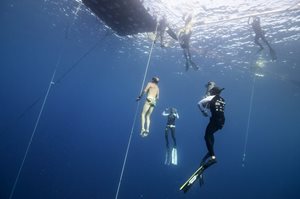
Mandela University Chemistry lecturer, Dr Gletwyn Rubidge, broke two national records and matched a third at the Freediving World Cup held in Egypt last month.
The competition, hosted in Sharm el Sheikh, was held over four days - one day for each of the four free dive disciplines. All the depth disciplines were constant weight which means that all weights used to reach the desired depth must be brought back up on the same dive.
On day one, Gletwyn tackled the constant weight bi-fin (CWTB) discipline where a competitor uses two flippers for the dive. He was successful and added one meter to the former national record of 70m. On day two, he repeated the CWTB discipline, this time reaching 75m and breaking his one-day old record!
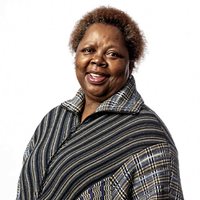
“My roots are in the Eastern Cape village of Centane where Wipagriculture, a subsidiary of Wiphold, has established a maize and soya bean farming project on 2500 hectares of land with 2800 landowners, of whom 52% are women,” says Gloria Serobe, leading South African businesswoman, CEO of Wipcapital, a subsidiary of Wiphold (Women Investment Portfolio Holdings) and pioneer in the field of broad-based economic empowerment for women.
Serobe was conferred with an Honorary Doctorate from Nelson Mandela University during the virtual graduation ceremony for the Faculty of Business and Economic Sciences on Thursday 22 April.
“We have always championed people in the rural areas, women in particular, and responded to what is needed,” says Serobe. “Food security and food production has come into sharp focus during the pandemic and Wipagriculture responds to this need, particularly in poor provinces like the Eastern Cape and Limpopo.”
Africa requires a country and university to take the lead
Africa requires a country and university to take the lead in governance and intellectual development for the blue economy and sustainable conservation of the continent’s oceans, says Emeritus Professor Martin Tsamenyi who was conferred with an Honorary Doctorate of Law (Maritime Law) from Nelson Mandela University during the virtual graduation ceremony for the Faculty of Law on Thursday 22 April.
Prof Tsamenyi grew up in a rainforest in Ghana and saw the ocean for the first time when he was 20 years old. From then on his career has been focused on motivating for, writing about and leveraging the law to protect the oceans.
Kaluke Mawila: The university campus principal who leads from the heart
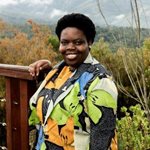
Leading from the heart and being mindful of other people’s struggles is what has characterised Kaluke Mawila’s leadership as the principal of the George campus at Nelson Mandela University.
Mawila arrived at the university just days after the level five Covid lockdown started in March last year. She was in a new town and did not know anyone but she says it is the support from people on campus and how they opened their hearts to receive her that has been at the centre of how she manages the campus.
“I mean, they went all out without knowing me. They checked in: ‘Campus principal are you fine? Do you have this, do you have that? What can we do?’ that to me shows that there is a lot of heart.
A champion of physics in South Africa
In recognition of his own past, Azwinndini Muronga has brought STEM enrichment opportunities to youth in remote, underserved towns and villages.
Growing up in a government-segregated “Black homeland” in South Africa, Azwinndini Muronga began looking after his family’s livestock at the age of 6. On school days, his mother would take the sheep, goats and cows to the forest to graze at noon. “When I came back in the afternoon, I would quickly change my school uniform and dash to the forest to take over,” he says. It was there that his love for science began.
Mandela Uni Convergence Fund's Book Bag Project
 The COVID-19 pandemic has proven to be much more than just a health crisis, but a societal one that has once again laid bare the country’s deep social crevices.
The COVID-19 pandemic has proven to be much more than just a health crisis, but a societal one that has once again laid bare the country’s deep social crevices.
South Africa is recognised among the most unequal countries in the world and this pandemic has exacerbated inequalities in our society and placed the poor and the vulnerable in even greater hardship and deprivation.
Since the emergence of the pandemic, Nelson Mandela University, as an engaged institution anchored in its resolve towards social justice, has been engaged in a number of initiatives to contribute to the broader societal efforts to mitigate the impact of COVID-19.
One of these was to fast track the establishment of the Nelson Mandela University Convergence Fund, which aims to contribute to addressing the plight of vulnerable communities adversely affected by the many socio-economic challenges exacerbated by the pandemic.
Interesting Italian history book written by Chemistry Prof

Former Mandela University Chemistry Professor and current Research Associate, Prof Peter Loyson recently published a new book entitled Her Story! A Tribute to Italian Women.
Featuring Italian women from earliest times to the present, the book covers over 900 women. “I call it a Corona Virus Special, as that is what I have been doing during the lockdown and the whole year of 2020. It is dedicated to my dear wife who passed away in November 2019” said Prof Loyson.
The book examines various activities of women in Italy over the years to present day. It has 16 chapters, each dedicated to a particular activity being ancient Roman, Saints, medicine women, artists, brilliant academics, literary figures, musicians, singers, the film industry, cooking, fashion, sport, influential women of today’s Italy, and finally, emigration of Italian woman talent.
Extensively researched with hundreds of references, it is a comprehensive encyclopaedic analysis highlighting the length and breadth of Italy’s most incredibly talented women. They are all discussed in chronological order in each of their fields with many interesting stories.
Her Story! Is available from various online platforms (Takealot, Amazon and Google Books) as well as directly from Prof Loyson
Peter.Loyson@mandela.ac.za